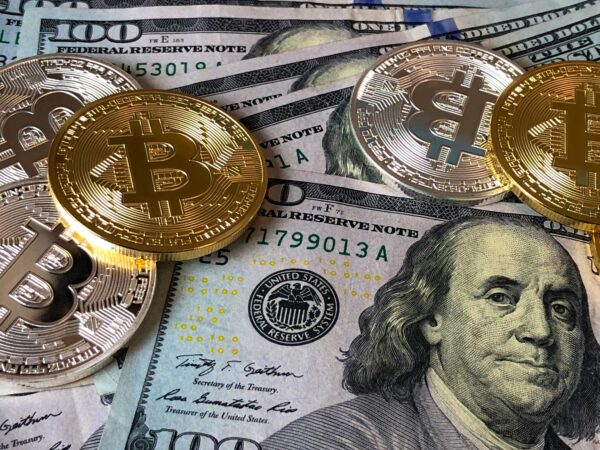In 2010, a single Bitcoin was worth about 8 cents.
Today, it’s nearly $62,000. Yesterday the mobile app known for buying crypto called Coinbase went public reaching almost one hundred billion dollar in valuation.
Despite its detractors, Bitcoin keeps going up and up. An inherently deflationary currency — a currency that is finite — it is built to grow in value. The same can be said about a multitude of other cryptocurrencies such as Ethereum, Litecoin, and even Dogecoin.
Cryptocurrencies were once treated as a joke. But they’re being taken seriously now. The question remains: How seriously should they be taken?
The State of the Crypto Market as of 2021
Cryptocurrency has gone from being denied on major payment processors (Visa, MasterCard, American Express) to showing up in ATMs. The cryptomarkets now support most major cryptocurrencies, with fringe candidates (such as Dogecoin) being slowly introduced. Market caps are growing. The market cap of Bitcoin stands at $1 trillion.
More companies are supporting cryptocurrency. Recently, Elon Musk stated that people could purchase a Tesla car in Bitcoin. It’s understandable. Cryptocurrency isn’t just a currency, it’s an investment. Companies make more by accepting Bitcoin and then holding it. And that is the double-edged sword.
Right now, cryptocurrency is still a relatively new technology. Ask the average person how the blockchain works, they won’t know. They don’t understand how the treasury works, either, however; they just have faith that it does. Consequently, the barrier isn’t really “understanding” the new technology. Right now, the barrier is usability.
How does someone purchase a Bitcoin? How do they invest in Ethereum? How can they turn a Bitcoin into a cheeseburger — or Ethereum into the down payment of a house? It’s these questions that need to be answered by the crypto market moving forward.
How Crypto Currency is Already Disrupting the World
As with any currency, crypto has some good aspects and bad aspects.
First, let’s tackle the bad. Untraceable currency has led to the proliferation of scams (such as malware and ransomware attacks) and a huge underground drug purchasing community (the dark net). Because it’s both currency and investment, it’s volatile. Most people don’t want to wonder if a cheeseburger is worth $10 or $1600 every morning; Bitcoin’s swings are no longer that volatile, but they used to be. While $1 trillion is a large market cap, it’s nothing compared to say USD ($30 trillion). It’s easily influenced. A single tweet from Elon Musk can send it doubling its price.
But, there’s the good. Volatility means a lot of money can be made. And the untrace-ability of Bitcoin is it working as intended; the idea is that Bitcoin being untraceable essentially means that anyone can use it for anything, true economic freedom. Even those who are in areas where they have an autocratic or dangerous government can purchase things that are important but “contraband.” Ideally, globalizing currency will make it easier to trade and will make it less likely any one country, such as the US or China, can control trade.
Crypto currency has already significantly disrupted many markets. And it will continue to do so.
The More Things Change, the More Stay the Same – It Won’t Replace Fiat Currency
Most analytics believe that crypto will definitely disrupt currency, but it’s probably not going to replace it. “Bitcoin is way too volatile to be used as money. Imagine if you had taken out a mortgage worth $250,000 in Bitcoin last March; you’d owe the bank $2 million today.”, says Andrei Jikh.
“Personally I think we will see a wave of adaptation and adoption of this across the board until we reach a point, of it being widely accepted,” says Eric Spivak. It’s likely that crypto is going to become another payment method, alongside the currency of whatever country a person is in. But even as we move away from “cash” standards, crypto is not likely to get complete adoption.
There are some technical issues that need to be surmounted. People can “lose” their Bitcoin forever; there’s no “Bitcoin” bank that can guarantee them their currency. Because Bitcoin is untraceable, theft cannot be tracked or reversed. And because cryptocurrencies are deflationary, they are inherently volatile. No one will hold onto a dollar bill thinking it will be worth more in the future. But people will hold onto Bitcoin, which means they are extremely hesitant to liquidate and actually use their Bitcoin or Ethereum — thereby reducing usage and exposure.
Once Bitcoin starts to even out and adoption becomes more universal, the desire to keep hoards of wealth will change. But there will still be concerns relative to the technology itself that need to be addressed.
The Next Evolution of Crypto: Where Does It Go From Here?
Fern Murias points out, “Crypto has a long way to go in terms of usability, and in order to expedite widespread adoption, I think it is crucial to build a bridge to legacy payment systems.” Adding Bitcoin to ATMs, Cash App, and other payment apps is one step. But Bitcoin still has to be easier to use.
When people get used to using things such as Apple Pay (tapping their phones rather than using a credit card or cash), then Bitcoin can become virtually indistinguishable from paying with US dollars. There will still be issues of volatility, but people will find themselves using Bitcoin seamlessly; that’s when adoption will increase.
Cryptocurrencies aren’t necessarily required to disrupt the world currency standard. They can simply provide an alternative currency standard. When alternative currency standards are introduced into the mix, it becomes vastly less likely that global powers can influence the world markets — and more likely that people themselves can be in control of a decentralized currency network.
And whether cryptocurrencies remain a niche investment or become a powerful financial instrument, they aren’t going away. At Colure, the success of our agency is built upon the success of our clients. Contact Colure’s Mobile App Development team today to build your blockchain app. Let’s grow!




Leave a Reply